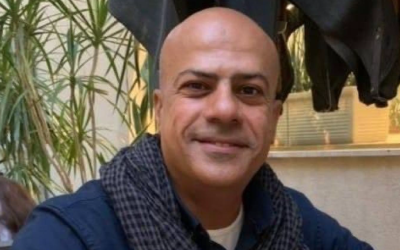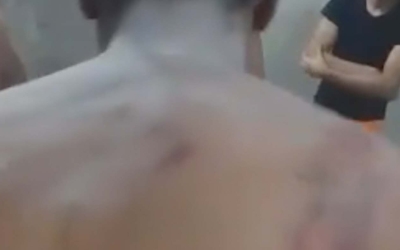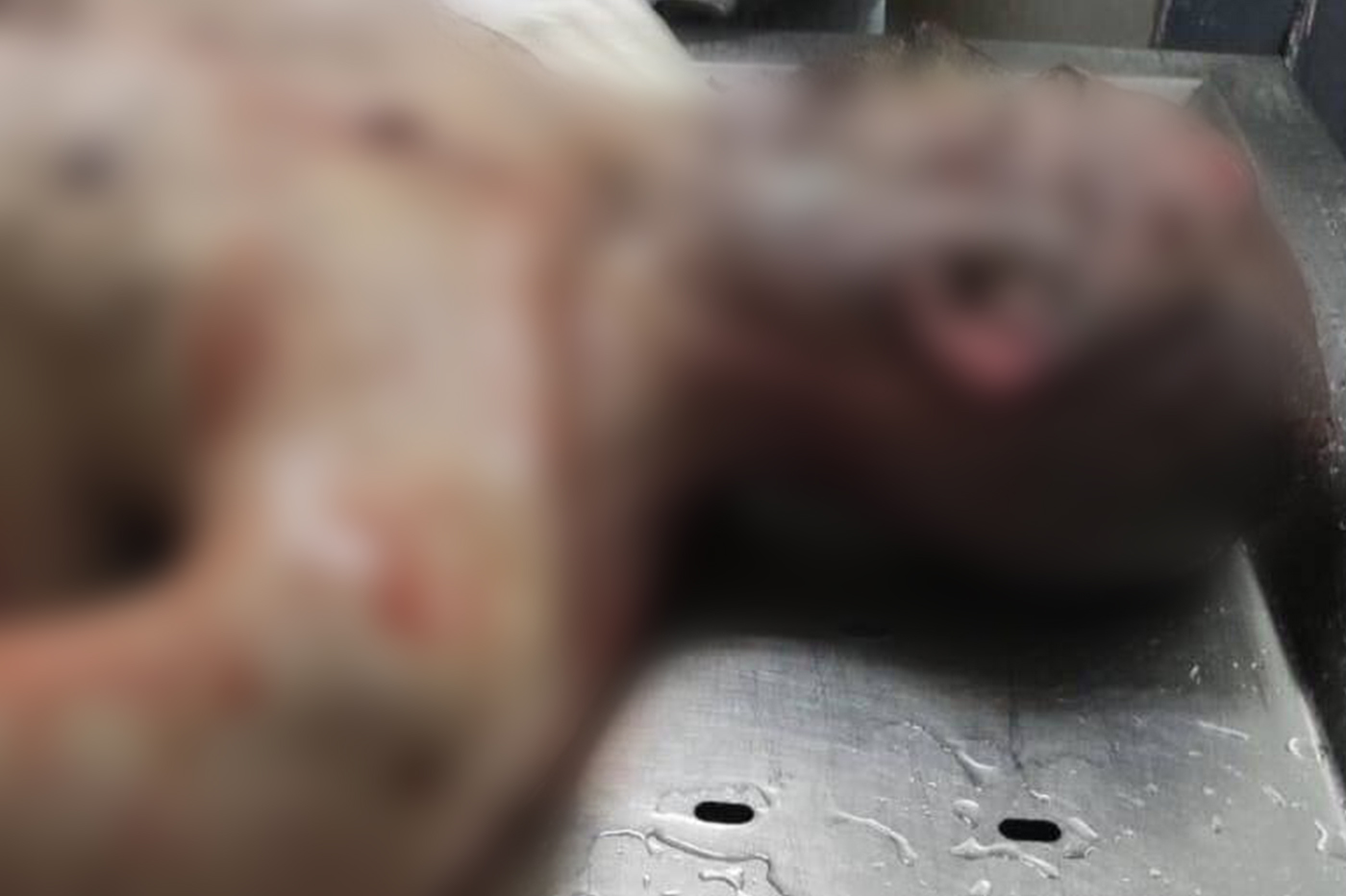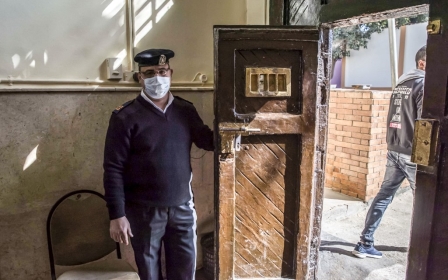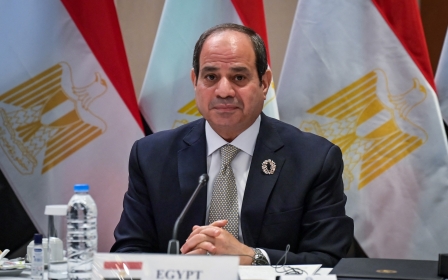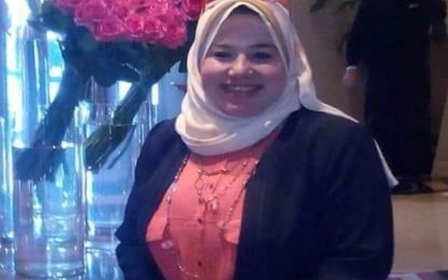Egypt: Leaked photos of economist's corpse show signs of torture
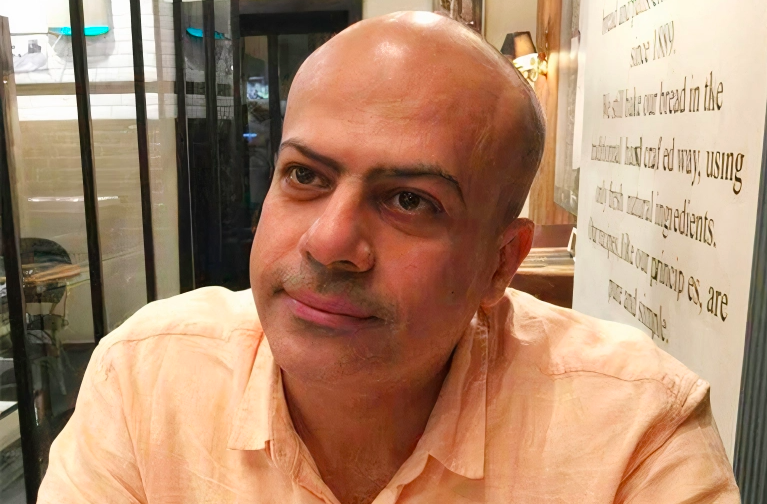
Leaked photos of the corpse of Egyptian economic researcher Ayman Hadhoud suggest he was tortured before his death, contrary to official claims.
Prior to his death, Hadhoud had criticised the government's economic policies and military rule led by President Abdel Fattah el-Sisi in social media posts.
Middle East Eye has obtained post-autopsy photos of the corpse of Hadhoud, the 48-year-old senior economist and politician who was found dead at a Cairo hospital two months after his detention and disappearance.
An Egyptian medicolegal expert, who spoke anonymously for security reasons, told MEE that the photos strongly suggest he might have a fracture in the nose and head, along with signs of beatings on his left shoulder and signs of burns on the face and his right forearm.
“CT scans need to be conducted to investigate where there are fractures in the skull,” the expert told MEE.
New MEE newsletter: Jerusalem Dispatch
Sign up to get the latest insights and analysis on Israel-Palestine, alongside Turkey Unpacked and other MEE newsletters
Hussein Bayoumi, Egypt researcher at Amnesty International, told MEE said the rights group assessed the same photos of his corpse, which suggests that Hadhoud was tortured or otherwise ill-treated before his death.
In a detailed analysis of the photos shared with MEE, forensic expert Derrick Pounder told Amnesty that "the marks to the face and forearms cannot be accounted for by the natural procesesses which occur after death (putrefecation) - they represent injuries."
"The distribution of these marks strongly suggests repeated systematic infliction in life, that is to say ill-treatment/torture. The depressed appearance of the injuries and their distribution to the forearms and face suggests that they were more likely caused by burns rather than blows," he added.
The family and their lawyer have not been allowed to receive a full copy of the autopsy report, according to Bayoumi.
The analysis matches statements by a family member who previously told MEE that prior to the autopsy, he saw Hadhoud's body at the hospital with signs of beatings and torture. According to the relative, when the family took pictures of Hadhoud as proof of the wounds, hospital staff threatened not to release the body unless they deleted the photos.
Below Middle East Eye publishes one image of Hadhoud's body, blurred for sensitivity reasons but showing severe bruising on his face.
Hadhoud, a senior economic adviser to Egypt's liberal Reform and Development Party, was detained on 5 February and forcibly disappeared until 9 April, when his family was asked to collect his dead body from the Abbasiya Mental Health Hospital.
The death of Hadhoud has been described as "suspicious" by a group of Egyptian and international rights groups, who reject the Public Prosecution's conclusion that he died of natural causes.
After learning about Hadhoud's presence in the hospital, his family said they suspected he had been killed, and feared a cover-up by the interior ministry was being planned.
The Public Prosecution has insisted that Hadhoud died on 5 March of "hypotensive shock and cardiac arrest", following its investigation of the case and an autopsy of the body. The investigation, based on the autopsy report, concluded on 18 April ruling out criminal reasons for the death and saying it was "not suspicious".
"The prosecution examined his body and found no injuries, and called in a health inspector to conduct an external examination... which confirmed no criminal suspicion in his death, and police investigations confirmed no criminal suspicion in his death," a statement by the Public Prosecution said.
This conclusion, however, was rejected by the family and human rights organisations, who accused the National Security Agency (NSA), Public Prosecution and Abbasiya Mental Health Hospital of concealing the truth behind Hadhoud's detention and death.
"Evidence indicates criminal violations behind Ayman's death, as he was alive on the evening of 6 February when he was arrested on charges of alleged theft," nine rights groups said in a report.
Contradictory official statements
Hadhoud's family lost contact with him on 5 February, when he last met with his brother Omar.
An NSA officer named Yassin Mustafa summoned another of Hadhoud's brothers, Adel, to the Amiriya Police Station on 8 February and told him that Hadhoud was in the custody of the NSA, without revealing his location. The officer asked Adel about his brother's workplace, studies and activities.
According to the rights groups' report, Hadhoud had criticised the security services prior to his arrest, saying he believed that they intervened in politics in favour of the wealthy.
"He may have expressed this opinion in writing on his laptop or mobile phone, thus indicating potential retaliation on the part of the National Security officers who unlawfully detained and interrogated him," the report added, citing the family as saying that they have yet to retrieve Hadhoud's mobile phone and laptop, which the authorities denied seizing.
After receiving information from the NSA officer, Hadhoud's family did not immediately file a report about his enforced disappearance, hoping to rely on unofficial mediation to release him.
Hadhoud was an adviser to Mohamed Sadat, a member of his party and also of the National Council for Human Rights and nephew of the late president Anwar Sadat. The family expressed fears that he would be subjected to harm, given that he suffered from psychological distress at the time.
Hadhoud was admitted to hospital on 14 February, which indicates that he had been held by the NSA for seven days before that.
When the family tried to visit him in hospital they were not allowed to see him, although the hospital director told one of his friends on 23 February that he was in good health.
The director told the friend that Hadhoud was held there under the authority of the forensic medicine department at the request of security services. A permit from security agencies or the public prosecutor was required to visit him, the director said, adding that Hadhoud had been charged with attempted car theft.
But the Public Prosecution, when contacted by the family, said he was being held in connection with a criminal case. The hospital consistently denied that he was being held there at all.
In early April, a friend of Hadhoud was told that he had died in Abbasiya Mental Health Hospital about a month earlier, and that there was no information regarding the whereabouts of his body.
Hadhoud's friends and colleagues began announcing that he had been forcibly disappeared and had been in the custody of the National Security Agency. His family returned to Mohamed Sadat, and on 7 April submitted a complaint regarding Hadhoud's detention to the president of the National Council for Human Rights, Moushira Khattab.
The family's efforts led to a shift in NSA tactics regarding the concealment of Hadhoud's body.
MEE sources and the rights groups said the NSA "attempted to erase any evidence of their wrongdoing by preparing for Ayman's burial in a charity cemetery without notifying his relatives".
When the family requested a permit to bury Hadhoud a day after his body was found, they were surprised that another permit had been issued previously to bury him in charity graves as an unidentified person.
Since phone cameras became commonplace in the mid-2000s, leaked videos and photos of torture in custody in Egypt have repeatedly surfaced on the internet. The photos of the tortured body of blogger Khaled Said and his death in police custody sparked a revolution in Egypt 12 years ago.
Then the issue of torture in Egypt came under international spotlight when an Italian parliamentary panel accused the Egyptian security apparatus of the kidnapping, torture and murder of Italian student Giulio Regeni in Cairo in 2016. A post-mortem examination showed he had been tortured before his death.
Regeni was among hundreds of other cases of deaths in detention that took place since President Sisi led a military coup against his democratically elected predecessor Mohamed Morsi in 2013.
Most of those deaths, as documented by the Geneva-based rights group Committee for Justice, were due to medical negligence, torture and poor detention conditions.
In the first 11 months of 2021, Egypt's Nadeem Centre for the Rehabilitation of Torture Victims documented 93 incidents of torture in police detention, along with 54 deaths in police custody.
Middle East Eye delivers independent and unrivalled coverage and analysis of the Middle East, North Africa and beyond. To learn more about republishing this content and the associated fees, please fill out this form. More about MEE can be found here.


